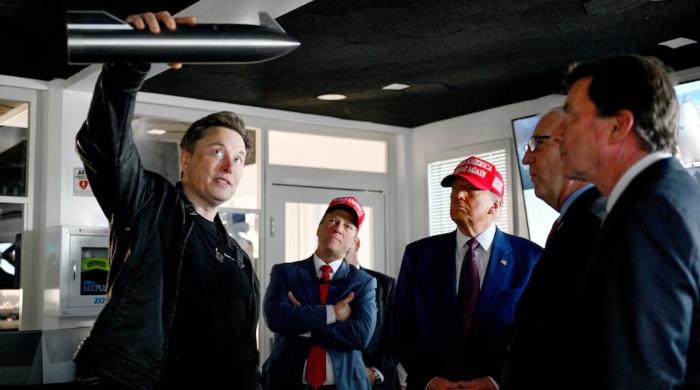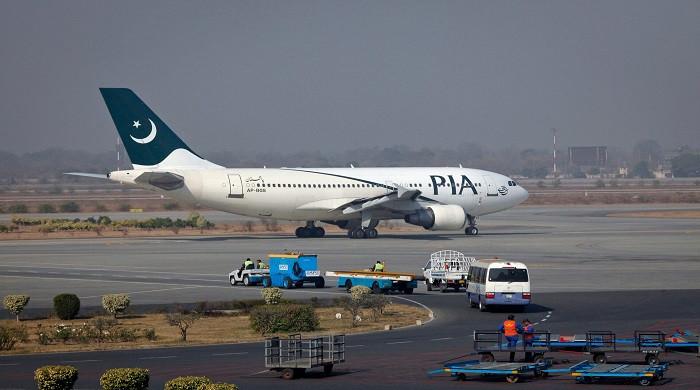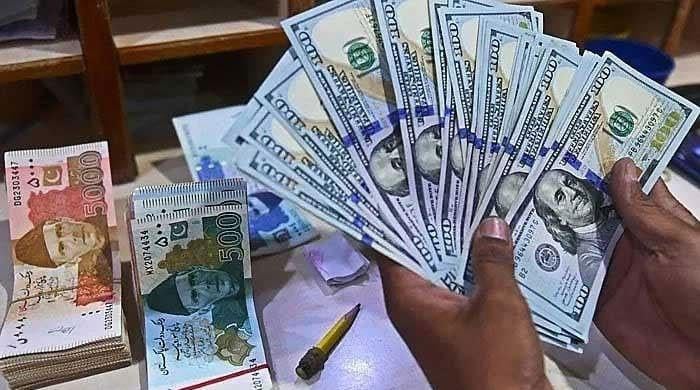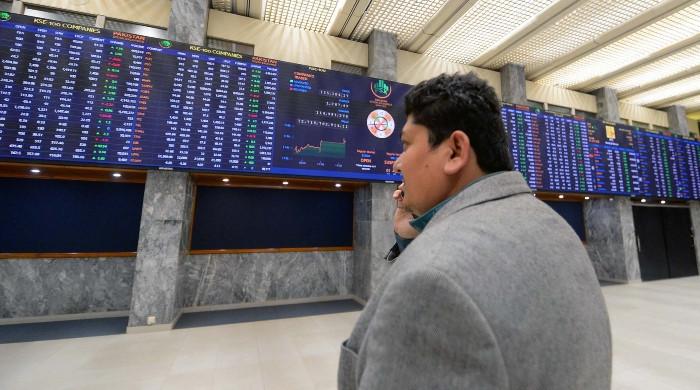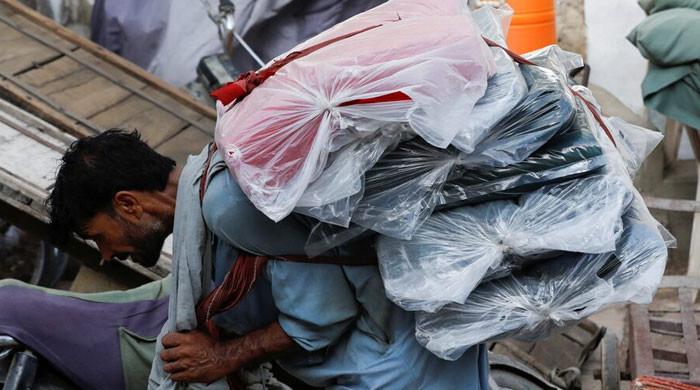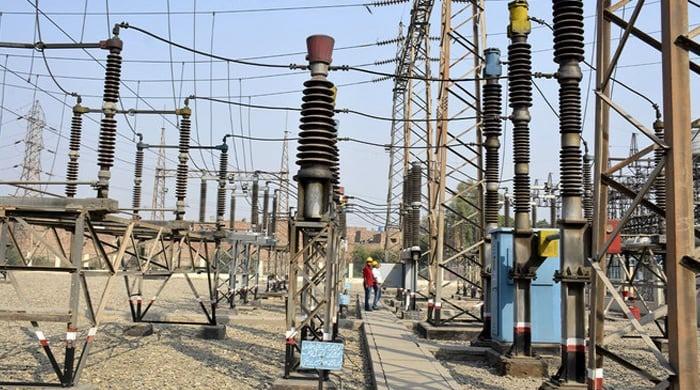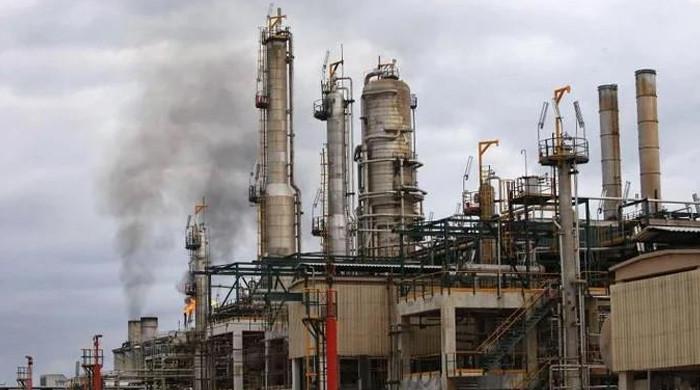Pakistan greenlights barter trade with Afghanistan, Iran, Russia
Items, including petroleum, LNG, coal, minerals, and several food items to be bartered
June 03, 2023
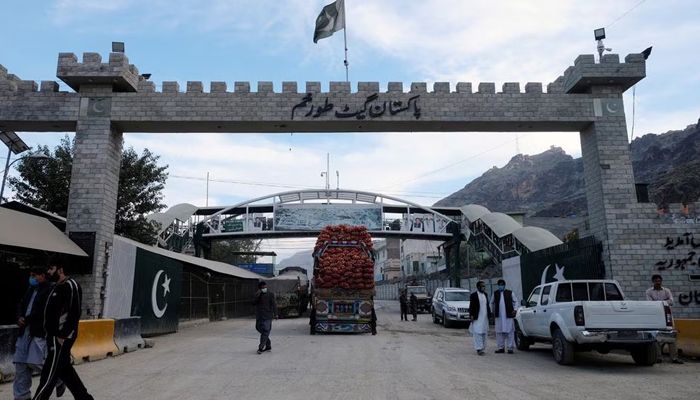
- List allows 26 items to be exported to Afghanistan, Iran, Russia
- Barter trade to help overcome banking transactions, sources say.
- No confirmation so far about how payment will be made.
ISLAMABAD: In another step to ease the burden on dwindling foreign exchange reserves in the country, Pakistan has passed a special order to allow barter trade with Afghanistan, Iran, and Russia for certain items — including petroleum, LNG, coal, minerals, metals, wheat, pulses, and several other food items.
According to a statutory regulatory order (SRO), issued by the Ministry of Commerce on Friday, the Government of Pakistan has allowed the import and export of goods under B2B barter trade with three countries including Afghanistan, Iran and Russia.
At a time when the Consumer Price Index (CPI) touched 38% and Sensitive Price Indicator (SPI)-based inflation clocked 48%, Pakistan has decided to allow barter trade with neighbouring countries, in the wake of the International Monetary Fund (IMF) not coming to rescue the ailing economy of the country.
The list allowed 26 items to be exported to Afghanistan, Iran and Russia. These include milk, cream, eggs, cereals, meat and fish products, fruits and vegetables, rice, confectionary and bakery items, salt, pharmaceutical products, essential oil, perfumes, cosmetics, toiletries, soaps, lubricants, waxes and matches, tanning, chemical products, plastic and rubber products, finished leather, textile (intermediaries) readymade garments, textile made-ups, iron and steel, copper, aluminium, tool and cutlery, electric fans and home appliances, electric equipment, motorcycles and tractors excluding components, surgical instruments, furniture items, and sports goods.
The government order — called the Business-to-business (B2B) Barter Trade Mechanism 2023 and dated June 1 — lists goods that can be bartered and outlines the process to be followed.
“Application for authorisation of import and export of goods under the B2B barter trade facility shall be submitted online by the trader or their authorised agent through the online system to the regulatory collector,” the notification said.
It also added that the regulatory collector having territorial jurisdiction may allow the export and import of goods against an authorisation, subject to the conditions stipulated under the order.
"The barter trade facility under this order may be admissible to the state-owned enterprises; and (2) private entities, subject to the following conditions, namely:- (i) its name appears on the active taxpayers’ list of Federal Board of Revenue; (ii) it is subscribed to Pakistan Single Window (PSW) System; and (iii) it possesses a valid import and export contract registered by Customs authorities in the Customs computerised system (WeBOC)."
The government has notified the products to be imported from Afghanistan, which include fruits and nuts, vegetables and pulses, spices, minerals and metals, coal and its products, raw rubber items, raw hides and skins, cotton, and iron and steel.
From Iran, Pakistani importers are allowed to import fruits, nuts, vegetables, spices, minerals and metals, coal and related products, petroleum crude oil, LNG and LPG, chemical products, fertilisers, articles of plastics and rubber, raw hides and skins, raw wool and articles of iron and steel.
From Russia, Pakistani traders will be allowed to import pulses, wheat, coal and related products, petroleum oils including crude, LNG and LPG, fertilisers, tanning and dying extracts, articles of plastic and rubber, minerals and metals, chemicals products, articles of iron and steel, and items of textile industrial machinery.
The Ministry of Commerce, in its statement, said that they held several meetings with high-level delegations of various countries in this regard to make the barter trade system possible.
It added that the move was an ideal step taken by the current administration to stabilise the country’s economy. It will not only increase the foreign reserves of the country but also increase the quantum of trade.
Moreover, sources said that the barter trade would help overcome banking transactions because, in the case of Iran, there was no possibility of transactions through official channels because of the economic sanction imposed by the United States of America.
When contacted Dr Khaqan Najeeb, former adviser to the Ministry of Finance, said it is hoped the barter trade mechanism would help the economy in the middle of prevailing gaps in Pakistan’s import and export potential.
He said regional trade is key to reaching a vast number of people so to facilitate barter trade with the three countries is a good idea. Barter can help discover innovative products, and trading opportunities and can help citizens near border areas to earn a better living.
The business community has been advocating proposals aimed at moving forward to operationalise the barter trade arrangement with the three very important countries.
The government has agreed with the business community proposals at a time when the country faces a severe dollar liquidity crunch to pay for important supplies, he concluded.
Sajid Amin, deputy director of the Sustainable Development Policy Institute, told a foreign news agency that Pakistan could gain particularly from oil and energy imports from Russia and Iran without adding to dollar demand. He added that the barter opportunity is important considering the dollar shortages the countries face.
“While it may not solve currency smuggling, particularly at the Afghanistan border, it can discourage smuggling of goods from Iran, such as diesel, and Afghanistan which is hurting the economy,” Amin added.
After Pakistan’s first purchase of discounted Russian oil in April, petroleum minister Musadik Malik said that Pakistan would only be buying crude, not refined products, under the deal.
There was no confirmation about how payment would be made but Malik said purchases could rise to 100,000 barrels per day (bpd) if the first transaction went smoothly.
The trade of goods under a B2B Barter Trade arrangement will be allowed on the principle of “import followed by export” and export would meet the value of imported goods.
The Federation of Pakistan Chamber of Commerce and Industry (FPCCI) said in a statement its years Irfan Iqbal Sheikh said of relentless policy advocacy initiatives for the barter trade with Russia, Iran and Afghanistan had borne fruit.
“We pitched barters trade, border markets and currency swap mechanisms very diligently in tens of top-level meetings with the concerned ministries and relevant governmental institutions over the past three-and-a-half years,” FPCCI president Irfan Iqbal Sheikh said.




